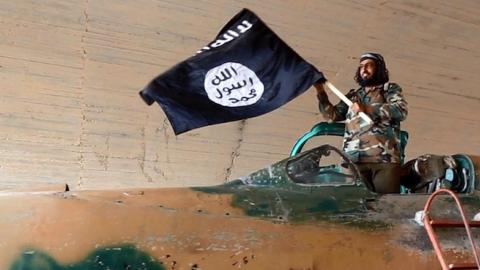In 1881, an obscure local religious leader in Sudan by the name of Mohamed Ahmed declared himself the long awaited Mahdi (divinely guided one). The claim was ridiculous at best, as established religious leaders were quick to proclaim. The prophecies of the coming of the Mahdi, while open to interpretation, clearly did not point to Mohamed Ahmed. His revision of established Islamic principles only led credence to his fraudulent nature. A small expedition sent to arrest him was, however, defeated and for the next two years his banner attracted thousands of followers. Egypt, the ruler of Sudan at the time, was too busy with its own troubles. No soldiers could be sparred to deal with a local annoyance.
By late 1883, an Egyptian force was finally sent to defeat him, but it was too late. In the battle of El Obeid they were annihilated. Panic quickly struck in London which ordered its Egyptian puppet state to withdraw from Sudan. British Prime Minister, William Gladstone, had no stomach for the fight. What business did the British Empire have in enforcing a corrupt Egyptian rule on the Sudanese people who rejected it? Let them have their freedom to decide their own fate, he reasoned. A tragic hero, General Gordon, was recruited to oversee the task of evacuation. Gordon’s heart was elsewhere and in any case it was probably too late. Barely a month after his arrival in Khartoum, the Mahdi’s army laid siege. The city’s fate was sealed. A reluctant Gladstone was forced to send a rescue expedition, though it was too late, for the city had fallen two days earlier. The public was outraged and blamed the Prime Minister. Queen Victoria herself rebuked him. Others blamed Gordon’s refusal to evacuate quickly. It hardly mattered. The dark reign of the Mahdi had begun and the peoples of Sudan were abandoned to their fate for the next fourteen years. The brutality, terror, and disappointments are captured by Hammour Ziada’s 2014 novel The Longing of the Dervish.
As the United States debates the proper response to the terrorist attack in Paris and the continued mayhem in Iraq and Syria it may be appropriate for us to ponder the lessons of the Mahdi revolt. Like the Mahdi revolt, the rise of the Islamic State is owed to both religious appeal, as well as years of failed local government., The chaos in the neighboring state, (Egypt in the Mahdi’s case), (Syria in the current one), provides the necessary catalyst for the local grievances to become the national cause and ultimately the transnational claim. Likewise, while hardly a statesman of the Gladstone mode, Obama’s indecisiveness, faintheartedness and general ambivalence, has led to the failure to develop a coherent strategy.
Despite more than a year of air strikes, the actions of Kurdish and Shia (otherwise known as the Iraqi army) forces, a grand coalition involving one third of the United Nations members, a training program for Syrian rebels and a host of other financial and media efforts, the Islamic State is nowhere near defeated. True, the collapse of its local opponent’s forces has been stopped on the Iraqi front. True, local forces have managed not only to defend Kobani, but retake Mount Sinjar and Tikrit. But the banner of the Caliphate still flies high across the lands formally known as Iraq and Syria. Gaining square miles may mean a lot in a battle, but only the fall of a banner will end the war, and as long as the Caliphate’s banner flies it will continue to lure pledges of allegiance from jihadi groups and attract thousands of Muslim youth.
But if Gladstone may be forgiven for his lack of interest in Sudan, wrongly assuming that it would not impact its neighbors or world politics before being awakened into action by Mahdi attacks on Egypt, Ethiopia and Italian positions in Africa, could the same be said today of a President who has failed to grasp the strategic significance of Mesopotamia or the declaration of the Caliphate? In the futile debate over whether the Islamic State is a state or a terrorist group, the most important detail has been lost. It is both and neither. It is the Caliphate attempted. As my colleagues Hillel Fradkin and Lewis Libby point out “for many Islamists, the Islamic State is a dream come true, a dream finally come true, a glorious dream, which represents for them the fulfillment of the Islamist movement’s whole, tortuous history.” And as long as that dream’s realization is undefeated the temptation will only grow. Every day it survives is a victory reinforcing that dream, with the international order under threat.
How then should the United States respond to such a threat?
With the changing tide in public opinion at home and the growing threat the Mahdi’s Ansar posed to their neighbors, Britain finally rose to the challenge and General Kitchener was dispatched. Among his officers was an ambitious young man, Winston Churchill. His account of the war, The River War, should be required reading at the White House today. Kitchener crushed the Mahdis at the Battle of Omdurman where they lost more than half their forces, and were finally eradicated as a threat one year later. Today the Mahdi movement still continues in Sudan, but its crushing defeat at the hands of the British ended its dream and turned it into a local political party.
The status quo in Sudan could not be reestablished, and neither can the artificial states of Mesopotamia. The secular non-sectarian state has failed. In truth it never existed. Arab Nationalism had been nothing but Sunni hegemony in Iraq and Alawite butchery in Syria. These countries are long gone and no amount of wishful thinking can bring them back to life. In Sudan, the British Empire opted for direct rule under the guise of a British Egyptian Condominium. The United States is thankfully no empire and neither should it seek to be one. While the Caliphate banner must be purged by swift military action before it takes hold and reproduces, on the shores of the Mediterranean in Libya, on Israel’s borders in Sinai, or within a new generation that is being taught under its rule, a political solution is necessary to rebuild the region.
The Sunnis of Mesopotamia cannot be expected to join in a battle against the Islamic State, only to be returned to Shia domination disguised as a unified Syria or Iraq under an Assad or an Iranian puppet regime in Baghdad. The Sunni tribesmen who bravely defeated the Islamic States’ predecessor, Al Qaeda in Iraq, have learned their lesson well. The foreigners will pack their guns and bags and leave them at the mercy of their enemies. Neither will the misguided policy of depending on Shia and Kurdish forces to defeat the Islamic State succeed. The reality is that the battle lines and territorial control in Mesopotamia today largely correspond to sectarian lines. Even if Kurdish or Shia forces were to retake Mosel or Raqqa, does anyone imagine they will be able to govern or defend these cities once won?
Instead, a new political formula must be created if the region is to know any form of peace and if we hope for something more than a defeat of the Islamic State only to leave behind a vacuum in which it would rise again. That new formula may involve the creation of new states as the Kurds most certainly would demand. It may involve the creation of a federalized system along the lines of Bosnia or a city-state formula. However it may look, it will require a huge amount of political will and imaginative strategies. But none of this will really matter if the cancer is not eradicated and the only way to do so is by using the only available weapon; the United States military. In 1885, six months after his victory in Khartoum, Mohamed Ahmed, the self-proclaimed Mahdi, died of typhus. His death at a young age may have limited the destruction he unleashed. In the absence of U.S. leadership, the world has little else but to hope for a similar miracle.

















